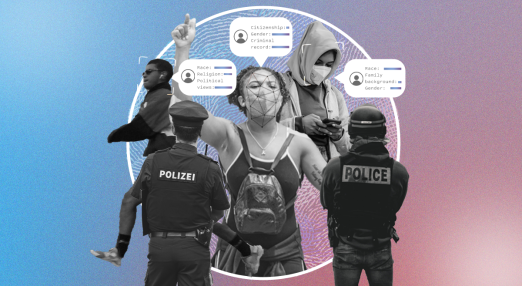Europol Regulation
Filter by...
-

Why the new Europol regulation is a Trojan Horse for surveillance
The EU Commission’s proposal for a new Europol Regulation as part of the recast of the ‘Facilitator’s Package’ is a pretext for unchecked expansion of power and resources for Europol, the EU’s policing agency, at the expense of those they claim to protect.
Read more
-

Europol management board in breach of new rules as soon as they came into force
The EU’s police agency, Europol, has landed itself in trouble again. Statewatch has now revealed that the agency’s management board was in breach of the new rules governing the agency as soon as they came into force in June.
Read more
-

New Europol rules massively expand police powers and reduce rights protections
The new rules governing Europol, which came into force at the end of June, massively expand the tasks and powers of the EU’s policing agency whilst reducing external scrutiny of its data processing operations and rights protections for individuals.
Read more
-

Rather delete than comply: how Europol snubbed data subject rights
On 8 September 2022, the European Data Protection Supervisor (EDPS) issued a decision ordering the EU law enforcement agency, Europol, to give Dutch activist Frank van der Linde access to the personal data the agency holds on him following a two-year investigation by the data protection watchdog. Findings of the inspection reveal that Europol tried to cover up the traces of the data processing and to avoid complying with the data access request by deleting van der Linde’s data.
Read more
-

Europol’s new powers will enable Big Data analysis and mass surveillance. We say NO!
The European Parliament is soon to vote on the new Europol reform which aims to expand the law enforcement agency’s powers without any accountability and with as few fundamental rights safeguards as possible. To influence the vote, EDRi has mobilised civil society organisations in a joint advocacy action of reaching out directly to members of the European Parliament to urge them to vote against the proposal.
Read more
-

MEPs poised to vote blank cheque for Europol using AI tools
This week, MEPs recognised the dangers of certain uses of Artificial Intelligence (AI) in criminal justice. A strong majority rallied around the landmark AI in criminal matters report by the European Parliament's Civil Liberties, Justice and Home Affairs (LIBE) committee, which opposes AI that 'predicts' criminal behaviour and calls for a ban on biometric surveillance.
Read more
-

Europol inches closer to increasing its powers despite lacking accountability
Europol was caught breaking the law and developing new initiatives without any proper legal basis (e.g. Europol’s innovation lab). Many proposed changes to Europol's mandate show an attempt to legalise the agency’s unlawful activities. In addition, this revision is happening even before the first implementation evaluation of Europol’s Regulation, planned for 2022, has been carried out. Without this evaluation, it is impossible to assess whether the current rules impede the fulfilment of the Agency’s missions and whether its working practices respect fundamental rights.
Read more
-

Europol: Non-accountable cooperation with IT companies could go further
There is an ongoing mantra among law enforcement authorities in Europe according to which private companies are indispensable partners in the fight against “cyber-enabled” crimes as they are often in possession of personal data relevant for law enforcement operations. For that reason, police authorities increasingly attempt to lay hands on data held by companies – sometimes in disregard to the safeguards imposed by long-standing judicial cooperation mechanisms.
Read more
